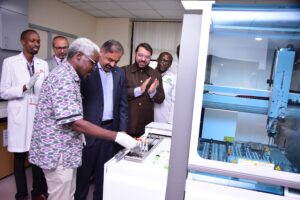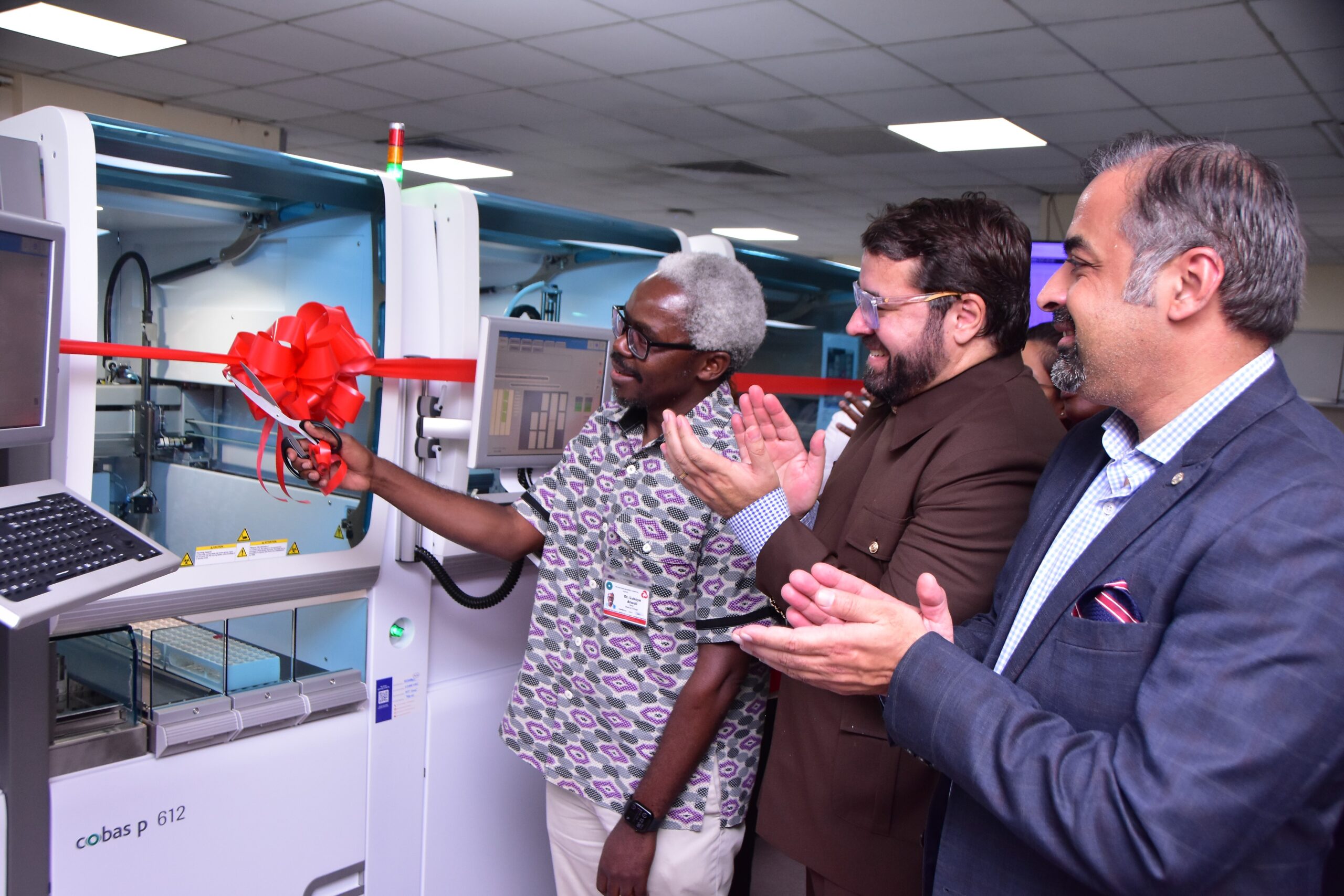Nairobi, Kenya– In a landmark move set to redefine the future of diagnostics in East Africa, the Aga Khan University Hospital (AKUH) in Nairobi has become the first healthcare facility in the region to implement Roche Total Lab Automation (TLA),a transformative system that fully automates laboratory processes, delivering faster, more accurate, and more reliable diagnostic results.
The new system, developed by Roche Diagnostics, represents a major breakthrough in laboratory medicine. It replaces the fragmented, manual steps of traditional lab testing with a streamlined, automated workflow, from loading and sorting patient samples to analysis, archiving, and reporting. This means not only shorter turnaround times, but also reduced human error, more consistent results, and 24/7 operation.
“We’re proud to support Aga Khan University Hospital in strengthening diagnostic services across East Africa,” said Taofik Oloruko-Oba, Roche’s Country Manager for Kenya and Head of the East Africa Network.“Reliable test results are the foundation of effective healthcare, and this technology makes that possible at scale.”

For patients, this innovation translates directly into better care. Timely and precise diagnoses are critical for treating life-threatening illnesses like cancer, heart disease, and infectious outbreaks and TLA ensures that doctors have the information they need, when they need it. Whether during a routine check-up or a public health emergency, clinicians can act faster and with greater confidence.
“The full automation of our lab process will significantly improve care delivery and diagnostic accuracy,” said Prof. Shahin Sayed, Chair of the Pathology Department at AKUH. “With fewer manual errors, faster results, and continuous operations, we are building trust with our patients and enabling clinicians to deliver timely, effective treatment.”
The Roche TLA system directly responds to global challenges in laboratory medicine including growing test volumes, limited staffing, and the ever-present risk of delay or error. By connecting multiple analyzers onto a single track and automating repetitive tasks, the system boosts both efficiency and scalability, allowing laboratories to better respond to surges in demand such as those experienced during the COVID-19 pandemic.
Moreover, the system includes Nucleic Acid Testing (NAT), a molecular technology that uses real-time PCR to detect infectious agents like HIV, hepatitis B, and hepatitis C at their earliest stages. Integrating NAT within the automated lab process not only ensures greater patient safety, but also boosts throughout, enabling faster and more reliable screening of blood donors and patients alike.
Although most patients will never see the advanced machinery behind their blood tests, the benefits are deeply felt. Faster lab results can mean earlier cancer detection, quicker treatment for sepsis or cardiac events, and better management of chronic diseases like diabetes. As a result, patients experience fewer delays, fewer repeat tests, and better long-term outcomes.
This installation also marks a broader commitment from Roche to expand access to high-quality diagnostics across the African continent. As part of its 10-Year Diagnostics Strategy for Africa, Roche aims to increase access to in-vitro diagnostics tenfold, particularly in underserved regions. The collaboration with AKUH is a cornerstone of this vision pairing cutting-edge technology with ongoing staff training, preventive maintenance, and a robust supply and logistics framework.
As East Africa continues to invest in modern healthcare infrastructure, innovations like Roche’s Total Lab Automation offer a glimpse into a future where high-quality care is accessible, efficient, and resilient not just in elite urban hospitals, but across the region. This milestone at Aga Khan University Hospital is not just a technological upgrade, it’s a paradigm shift for diagnostics, with implications that could ripple across health systems in Africa and beyond.

